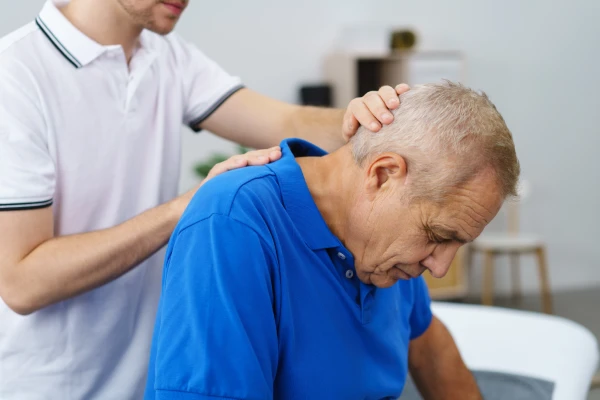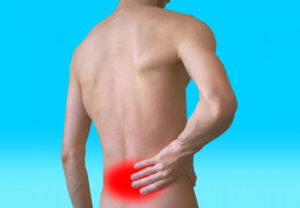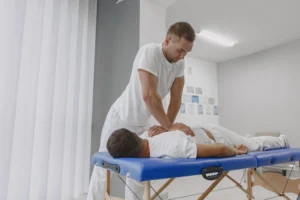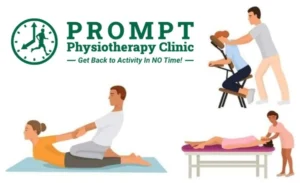Concussion Management At Prompt Physiotherapy Clinic
What causes a concussion?
Any blow to the head, face or neck, or somewhere else on the body that causes a sudden jarring of the head may cause a concussion. Examples include getting body-checked in hockey or hitting one’s head on the floor in gym class.
When should I suspect a concussion?
A concussion should be suspected in any athlete who sustains a significant impact to the head, face, neck, or body and reports ANY symptoms or demonstrates ANY visual signs of concussion. A concussion should also be suspected if an athlete reports ANY concussion symptoms to one of their peers, parents, teachers, or coaches or if anyone witnesses an athlete exhibiting ANY of the visual sings of concussion. Some athletes will develop symptoms immediately while others will develop delayed symptoms (beginning 24-48 hours after the injury).

Get the Best Treatment
What are the symptoms of a concussion?
A person does not need to be knocked out (lose consciousness) to have had a concussion. Common symptoms include:
- Headaches or head pressure – Easily upset or angered
- Dizziness – Sadness
- Nausea and vomiting – Nervousness or anxiety
- Blurred or fuzzy vision – Feeling more emotional
- Sensitivity to light or sound – Sleeping more or sleeping less
- Balance problems – Having a hard time falling asleep
- Feeling tired or having no energy – Difficulty working on a computer
- Not thinking clearly – Difficulty Reading
- Feeling slowed down – Difficulty learning new information
What are the visual signs of a concussion?
Visual signs of a concussion may include:
- Lying motionless on the playing surface
- Slow to get up after a direct or indirect hit to the head
- Disorientation or confusion or inability to respond appropriately to questions
- Blank or vacant stare
- Balance, gait difficulties, motor incoordination, stumbling, slow labored movements
- Facial injury after head trauma
- Clutching head
What should I do if I suspect a concussion?
If any athlete is suspected of sustaining a concussion during sports they should be immediately removed from play. Any athlete who is suspected of having sustained a concussion during sports must not be allowed to return to the same game or practice.
*It is important that ALL athletes with a suspected concussion undergo medical assessment by a medical doctor or nurse practitioner, as soon as possible. It is also important that ALL athletes with a suspected concussion receive written medical clearance from a medical doctor or nurse practitioner before returning to sport activities.
When can the athlete return to school and sport?
It is important that all athletes diagnosed with a concussion follow a step-wise return to school and sports-related activities that includes the following Return-to-School and Return-to-Sports Strategies. It is important that youth and adult student-athletes return to full-time school activities before progressing to stage 5 and 6 of the Return-to-Sport Strategy.
References:
Van Ierssel, J. (2018) Pre-season concussion education sheet. R2P acute management sport-related concussions. Calgary, AB: Mount Royal University.
What’s your takeaway?
Healthy joints. Strong muscles. Calm mind.
- You will be seen by an experienced therapist in a timely manner (no rush appointment) to identify problem and make a clear treatment plan with timelines.
- Our clinicians work together to make sure you get the best treatment that is evidence-based.
- Direct Billing for your convenience
- We are available when you need us, with flexible hours, no waiting, and ample free parking.
- We are only happy when you are happy and satisfied, that is why we work with your Doctor and give progress updates to make sure nothing is missed.
Blog
Explore Our Blogs

Unlocking Wellness: The Ultimate Guide to the Benefits of Massage Therapy for Mind and Body
Read More »





